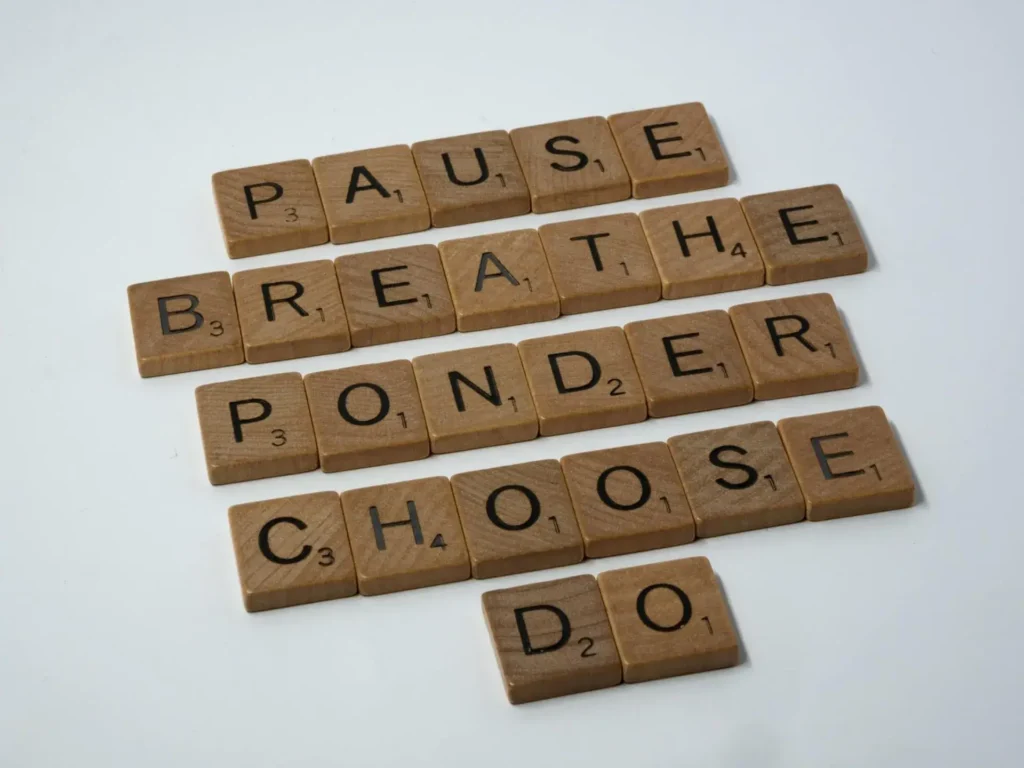
What is Emotional Intelligence, and why does it matter?
Most of us have heard about IQ, that is, the Intelligence Quotient, but beyond this concept there is the Emotional Quotient, the EQ, which is a flexible ability that we can learn. But what exactly is Emotional Intelligence?
“Emotional Intelligence is our ability to recognize and understand emotions in ourselves and others, and it is also the ability to use this awareness in managing our behavior and our relationships “.
– Daniel Goleman
It is a way of seeing intelligence beyond its cognitive aspects, such as memory and problem solving. When we talk about Emotional Intelligence, we are talking mainly about our ability to effectively address others and ourselves, to connect with our emotions, to manage them, to self-motivate them, to control our impulses and to overcome frustrations.
EQ is a pillar for a set of critical capabilities, is the biggest indicator of workplace performance and the strongest driver of leadership and personal excellence (2). It is therefore a useful and important skill for any Human Being who gets along with other Human Beings, and which can help us to have greater tranquility and quality of life when it comes to our mental and emotional life. On the other hand, the combination of IQ and EQ is one of the best ways to get a view of the person as a whole (2).
To find out more about these topics, we suggest below some of the books by one of the most recognized authors on the subject of Emotional Intelligence. Daniel Goleman started as a journalist at The New York Times, and today is considered “The guru” of Emotional Intelligence. Among the several books he wrote within the theme, we have:
-
- Emotional intelligence (1995)
Goleman explains that there are four basic dimensions in his approach to emotional intelligence:
-
- Self-awareness
-
- Self-motivation
-
- Social awareness and empathy,
-
- Relationship management.
Why does Emotional Intelligence matter?
Every day, each of us, Human Beings, have to deal with dozens, if not hundreds of people in our daily lives: in traffic, at work, in our personal lives, when going shopping, in gym or medical clinic. The better we can be aware and deal with emotions, the better and calmer our mind and emotional health will be.
The daily challenge of effectively dealing with emotions is critical to the human condition, as our brains are programmed to prioritize emotions. This works like this: everything we see, hear, smell, touch and taste travels through our body through electrical signals, until it reaches the terminal station, the brain. The problem is that, along the way, these signals pass through the limbic system (where emotions are generated), which means that emotion comes before reason, that is, we feel things before thinking about them (1).
Now, according to scholars on this topic, the physical origin of emotional intelligence is related to the communication between our emotional and rational “brains” (even though there is no physical difference between them). It is said that all of our emotions derive from five central feelings: joy, sadness, anger, fear and shame. The more intense the emotions, the more likely they are to dictate our actions.
It has happened to most of us, that we are in the middle of a situation where we say something “hot-headed” that we later realize (and sometimes regret) and wish we hadn’t said, or that we would have said it anyway. another way, more assertive and constructive. But why does this happen anyway? Of “having your heart in your mouth”, as they say in the slang.
Emotions are interpretations of feelings, in turn, the feelings we have emerge from our motivational system. The first reaction to an event will always be an emotional reaction, which means that what we can control are our thoughts, which follow an emotion – as long as we are aware of them (2). In other words, the more deeply our motivational system is engaged in a situation, the stronger the feelings will be (3). Many people try to ignore negative feelings instead of trying to understand them – the so-called “let it go” or “let it go.” However, according to those who understand the matter, to have this attitude is to be missing the opportunity to receive and interpret this valuable information.



Four Dimensions of Emotional Intelligence
1. Self-awareness
Self-awareness is the ability to correctly understand our own emotions as they occur and to understand our tendencies in the course of situations. It refers to our ability to understand what we feel, to be connected to our values, to our essence. It involves being aware of our usual reactions to certain events, challenges and people (2).
A high degree of self-awareness implies that we are willing to tolerate the discomfort that comes from focusing on feelings that may be negative (2). It requires a great deal of introspection and also the ability to internalize the feedback we receive from colleagues, friends and family.
Emotions ALWAYS serve a purpose. Situations that generate strong emotions will always require greater reflection.
People with high self-awareness are admirably clear in their understanding of what they do well, what motivates them and makes them happy (2).
The negative side of self-consciousness is that, in excess, it can reduce self-esteem. It can lead to a person tending to be realistic rather than optimistic, and insecure rather than confident. The opposite is not true: a self-confident and optimistic person does not necessarily have high emotional intelligence (3).
“Conscience Precedes Change.”
2. Self-management
It’s what happens when we act or don’t act, and it depends on our self-awareness. Self-management is the ability we have to use awareness of our emotions to remain flexible and direct behavior in a flexible way, thus being able to guide ourselves towards our goals, recover from setbacks, and manage stress.
When things go wrong in our lives, we tend to be our own enemy. Daniel Goleman suggests that we have self-compassion, as self-compassion is also consistently related to a wide range of measures of emotional well-being, such as optimism, life satisfaction, autonomy and wisdom, and also with reducing stress, anxiety and depression.
In short, we need to treat ourselves as we would a friend, with sympathy and support.
3. Social Awareness
Social awareness is the ability we have to correctly detect emotions in others, and to understand what is happening to them. If we look within, we will certainly be able to recognize that it is easy to get caught up in our own emotions and forget to take into account, or to consider, what is going on in the lives of the other person(s).
When it comes to this area, listening and observing are the most preponderant elements.
Try to remember a conversation you had recently. If you are aware of the entire conversation, you may realize that your interlocutor may have interrupted you before the reader finishes his sentence (or vice versa, too), this is because our brain’s tendency is to finish sentences while still in progress. Before we hear them, we have to anticipate what the other person is about to say or do.
To develop social awareness we have to stop talking, stop the internal monologue of our minds, stop anticipating the conclusion that the other person will say, listening and observing more.
4. Relationship Management
Relationship management is our ability to use our awareness of the presence of emotions, our own and those of others, and thus manage interactions successfully. Achieving this ensures clear communication and effective conflict handling.
Solid relationships result from the way we understand people, how we treat them and the history we share with them. If we want to be heard, we have to practice relationship management and look for benefits in all relationships.
From a work point of view, conflicts tend to be exacerbated when people avoid problems by acting passively (or on the contrary when they are unable to manage their anger or frustration and end up taking it out on someone), because they lack the necessary skills to start a direct and constructive conversation.
How to develop Self-awareness and Self-management?
Plasticity is the name given to our brain’s ability to change, specifically “neuroplasticity“. As in many other things in life, change does not happen overnight, change is gradual, and therefore it is necessary to practice, practice, practice, repeatedly, until what we want to change is already part of us and the our personality, possibly after a few months or years.
a) Strategies for developing Self-Awareness

- Start a journal with your emotions.
- Stop and ask yourself why you do what you do.
- Know yourself under stress.
- Know your values.
- Stop treating your feelings as good or bad, they just are what they are.
- Get closer to your discomfort.
b) Strategies for developing Self-Management
- Breathe correctly
- Create a list: emotion versus reason
- Count to 10
- Sleep on it
- Talk to a proficient self-manager
- Take control of your inner dialogue
Mindfulness and Meditation as strategies
Mindfulness, can help you deal with your current situation and find ways to deal with each aspect. For example, deep breathing (as we talked about above) allows us to stay in the present and have more control to regain balance in our mind and body (in another article we will talk more about this technique).
To practice mindfulness, there are some principles to keep in mind:
- Non-judgmental
- Patience
- Begginer’s mind
- Effortless
- Acceptance
- Let go
Meditation is a practice that not everyone feels comfortable with, but it can be effective if used well. Meditation is not necessarily associated with any religion, but can be related to other forms of practice. Lack of energy is a common factor associated with mental health. Meditation can help with challenges associated with mental health, offering scope and focus, as deep breathing and body movements can be practiced to provide energy. Small changes can lead to big improvements.
Music is a highly subjective strategy, but it has been proven in research to help elevate mood and emotions.
In addition to all this, the use of reflective practice is vital. Reflective practice will facilitate and support the processes. Therapeutically, psychology can be an excellent way to get help in this process.
Meditation is a practice that not everyone feels comfortable with, but it can be effective if used well. Meditation is not necessarily associated with any religion, but can be related to other forms of practice. Lack of energy is a common factor associated with mental health. Meditation can help with challenges associated with mental health, offering scope and focus, as deep breathing and body movements can be practiced to provide energy. Small changes can lead to big improvements.
Music is a highly subjective strategy, but it has been proven in research to help elevate mood and emotions.
In addition to all this, the use of reflective practice is vital. Reflective practice will facilitate and support the processes. Therapeutically, psychology can be an excellent way to get help in this process.
Final note
We thus come to the conclusion that it is very important to become more self-aware and capable of managing our emotions. But how can we become more aware of our emotions, feelings and thoughts? See below some suggestions made by
Harvard Business Reviews (3):
When you have negative thoughts, slow down, pay attention to what you are feeling and why you are feeling it.
If you feel tense, stop for 10 minutes (or 5, or 1 minute), sit Get yourself alone, and take a deep breath. Breathing deeply and calmly helps us to have greater mental clarity.
See our article on Chronic Pain where we present the square breathing strategy.
Think about some events from your day. Pay attention to how these thoughts influence how you are feeling (sometimes you have a more emotional reaction like crying or feeling angry, or frustrated – it means you have touched on something important). You may not understand the source of your feelings the first few times you do this exercise, but over time you will become more skillful and more aware, which is the goal.
Name your emotions: joy, love, anxiety, regret, jealousy, guilt, disappointment, frustration, gratitude, humiliation, envy, judgment, mourning, fear, worry, anger, longing, loneliness – is an important first step in knowing how to deal with them.
Only when we realize What bothers us is that we can outline an action plan to deal with the situation. If you’re feeling hot-headed, it may be helpful to let some time pass until you figure out how to deal with the situation in a calmer, more assertive way.
Did you like this article? Share it with anyone who could benefit from this information or leave us a message.
References
https://exploringyourmind.com/daniel-goleman-and-his-theory-on-emotional-intelligence/
Bradberry & Greaves. Emotional Intelligence 2.0.
HBR Guide. Emotional Intelligence.






